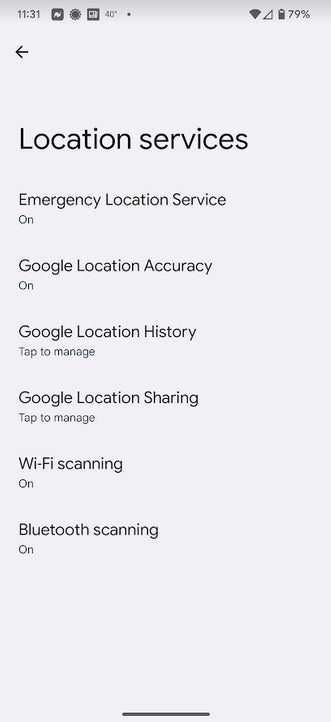Google's "dark patterns" trick users into revealing personal data; lawsuit settled for $392 million

The Michigan Attorney General's office on Monday announced that Google entered into a settlement agreement that will cost the Alphabet unit $391.5 million. 40 states accused Google of tracking users' locations illegally. Oregon and Nebraska were the two states at the forefront of the states that accused Google of illegal action. Arizona filed a similar case against Google and settled last month for $85 million.
Google settles location-tracking lawsuit with 40 states for $391.5 million
Texas, Indiana, Washington, and Washington D.C. sued Google in January after accusing the company of deceptive location-tracking practices that can get past privacy settings. Google collected $111 billion in advertising revenue during the first half of 2022 leading all online advertising companies. While the fines seem large, to Google they might be considered the cost of doing business.

Location services page on Android 13 QPR1 Beta 3.5
But there is more than just money involved here. Google must make changes to its location tracking so that users know when Google is in the process of tracking them. The Iowa Attorney General's Office said that it wants Google to create a special web page that would allow users to see the detailed location-tracking data that Google has collected on them.
The Iowa Attorney General, Tom Miller, left a statement posted by Reuters that said, "When consumers make the decision to not share location data on their devices, they should be able to trust that a company will no longer track their every move. This settlement makes it clear that companies must be transparent in how they track customers and abide by state and federal privacy laws."
Google was accused by the states of using deceptive online designs called "dark patterns" that can trick users into passing along personal information to the company. In one example showing how this type of deception works, Google told users that they had to share their location history with the firm in order to "get the most from Google maps." Truthfully, the requested data isn't needed for Google Maps to work correctly.
Those who decided not to share their location history with Google were "nudged" or reminded constantly by Google to share the data. The attorneys general involved in the lawsuit noted that "By repeatedly 'nudging' users to enable Google Account settings, Google increases the chances that a user will enable the setting inadvertently or out of frustration."
The lawsuit also said that Google gave users "misleading, ambiguous, and incomplete descriptions" of other location and privacy settings. This resulted in misleading some users to believe they weren’t sharing data with the company even though they were.
Google blames its actions on "outdated product policies that we changed years ago."
The suit filed in January included this comment from the Attorneys General of Washington, D.C., Texas, Washington state, and Indiana: "Google has collected enormous amounts of location data from unwitting users and monetized that data in the service of Google’s advertising offerings without users' knowledge or consent."
Google spokesman Jose Castaneda said, "Consistent with improvements we’ve made in recent years, we have settled this investigation which was based on outdated product policies that we changed years ago." But the damage continues to be done. Since the start of 2022, Google parent Alphabet has seen its shares decline by over 32% joining other tech icons such as Meta (down 65% year-to-date), and Amazon (down 40.96% for 2022).
Google isn't the only high-profile tech firm getting ripped for tracking users. Just a few days ago Apple was sued by iPhone users after it was discovered that disabling privacy settings on the device failed to prevent iPhone users from tracking users. Apple has heavily promoted the privacy of the iPhone over the years and in 2018 CEO Tim Cook famously said that Apple would never make its customers the business.
Cook's comment came after Facebook was discovered to have allowed millions of its customers to have their personal data harvested without their permission.













Things that are NOT allowed: